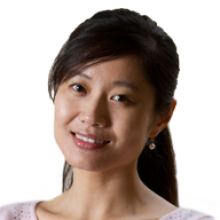ChEMS Seminar: Damage-Tolerant and Multifunctional Cementitious Materials

Civil and Environmental Engineering
Chemical Engineering and Materials Science
University of California, Irvine, CA
Abstract: Damage tolerance, sensing and healing are naturally occurring phenomena found in many biological systems, optimized through millennia of evolution. Man-made materials, however, generally do not possess such attributes. Concrete is the most heavily used man-made material, whose development has been following a damage prevention approach rather than a damage management concept. This talk highlights the ongoing research on designing new cementitious materials with damage tolerance and novel functionalities responsive to external influences, aiming to improve safety and sustainability of civil and energy infrastructure. Achieving this goal requires addressing a series of questions such as: Is repeatable self-healing possible in cementitious materials? Can concrete behave as versatile piezoresistive sensors, connecting mechanical stimuli to electrical responses? If possible, what physical and chemical variables need to be controlled to formulate such cementitious material systems? These questions are stimulating new and exciting developments at the interface of science and engineering.
Bio: Mo Li is an assistant professor of civil and environmental engineering at UC Irvine, with a joint appointment in chemical engineering and materials science. Prior to joining UCI, she was an assistant professor of civil and environmental engineering at the University of Houston. She received her doctorate in civil engineering from the University of Michigan, Ann Arbor in 2009. At Michigan, she also completed two M.S. degrees in industrial and operations engineering, and civil engineering. She completed her undergraduate studies at Tongji University in China. Li’s research focuses on functional materials and responsive materials for contexts in civil and environmental engineering. Her group engages in interdisciplinary research linking mechanics, materials science and industrial ecology to explore the interaction between materials, structures and the environment.
Host: Professor Mikael Nilsson
Share
Upcoming Events
-
EECS Seminar: Steering Diffusion Models for Generative AI, From Multimodal Priors to Test-Time Scaling
-
MAE 298 SEMINAR: Hypersonic Viscous Aerothermochemistry - External Aerothermodynamics and Scramjet Fuel-Air Mixing
-
CBE 298 Seminar: Finding Catalysts of Gut Reactions - The Gut Microbiota in Disease Onset and Treatment
-
CEE Seminar: Confirming a Critical Foundation of Global Warming - Direct Observational Evidence from Space of the Impact of CO2 Growth on Infrared Spectra
-
CBE 298 Seminar: Teaching Transport Phenomena Through Observation - From Einstein’s Tea Leaves to Dissolving Skittles
